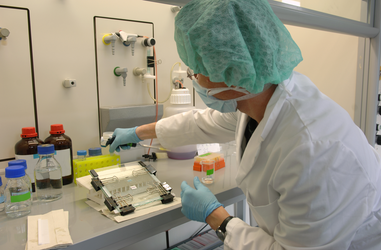- No products in the cart.
Nitinol is a nickel-titanium alloy with unique properties that make it an attractive material for a wide range of engineering and manufacturing applications. These properties include shape memory, superelasticity, biocompatibility, and corrosion resistance.
Traditional metals, on the other hand, have different properties that make them better suited for some applications. For example, steel is strong and stiff, while aluminum is lightweight and easy to machine.
In this blog post, we will compare the advantages and limitations of nitinol and traditional metals in engineering and manufacturing. We will also discuss some of the specific applications where nitinol is used.
Advantages of Nitinol
-
Shape memory. Nitinol has the ability to remember its original shape after being deformed. This property is called shape memory. Shape memory is used in a wide range of applications, including medical devices, actuators, and robotics.
-
Superelasticity. Nitinol is also superelastic, which means that it can be stretched to a large amount without permanently deforming. This property is used in applications where a material needs to be able to withstand large deformations without breaking, such as stents and heart valves.
- Biocompatibility. Nitinol is biocompatible, which means that it is not toxic or harmful to living tissue. This property makes it an ideal material for medical implants, such as stents and heart valves.
- Corrosion resistance. Nitinol is corrosion resistant, which means that it does not corrode easily. This property makes it an ideal material for applications where corrosion is a concern, such as marine environments.
Limitations of Nitinol
- Cost. Nitinol is more expensive than traditional metals, such as steel and aluminum.
- Processing. Nitinol is more difficult to process than traditional metals. This is because it is sensitive to heat and can be easily damaged.
- Strength. Nitinol is not as strong as some traditional metals, such as steel.
Advantages of Traditional Metals
- Strength. Traditional metals, such as steel, are very strong. This makes them ideal for applications where strength is important, such as construction and infrastructure.
- Stiffness. Traditional metals are also stiff, which means that they do not bend easily. This property makes them ideal for applications where stiffness is important, such as springs and bearings.
- Cost. Traditional metals are less expensive than nitinol.
- Processing. Traditional metals are easier to process than nitinol.
Limitations of Traditional Metals
- Corrosion. Traditional metals are not as corrosion resistant as nitinol. This means that they are more likely to corrode in harsh environments.
- Biocompatibility. Traditional metals are not as biocompatible as nitinol. This means that they can be toxic or harmful to living tissue.
Applications of Nitinol
Nitinol is used in a wide range of engineering and manufacturing applications, including:
-
Medical devices. Nitinol is used in a variety of medical devices, including stents, heart valves, and orthodontic braces.
-
Actuators. Nitinol is used in actuators, which are devices that convert energy into motion. Actuators made of nitinol are used in a variety of applications, including robotics, medical devices, and aerospace.
- Sensors. Nitinol is used in sensors, which are devices that measure physical quantities. Sensors made of nitinol are used in a variety of applications, including temperature sensors, pressure sensors, and strain sensors.
- Other applications. Nitinol is also used in a variety of other applications, including fishing lures, golf clubs, and jewelry.
Conclusion
Nitinol is a versatile material with unique properties that make it an attractive material for a wide range of engineering and manufacturing applications. However, it is also more expensive and difficult to process than traditional metals.
The choice of whether to use nitinol or a traditional metal will depend on the specific application. If the application requires the unique properties of nitinol, such as shape memory or superelasticity, then nitinol is the best choice. However, if cost or processing difficulty are important factors, then a traditional metal may be a better choice.
For over 40 years, Lab Pro Inc. has been committed to delivering the highest quality lab supplies, lab equipment, reagents, distance learning kits, and cleanroom PPE apparel. Renowned by global medical device companies and laboratories, we ensure exceptional quality in every product. Contact us online or call 888-452-2776 to learn more. Discover top-notch lab supplies and elevate your experiments today!












































